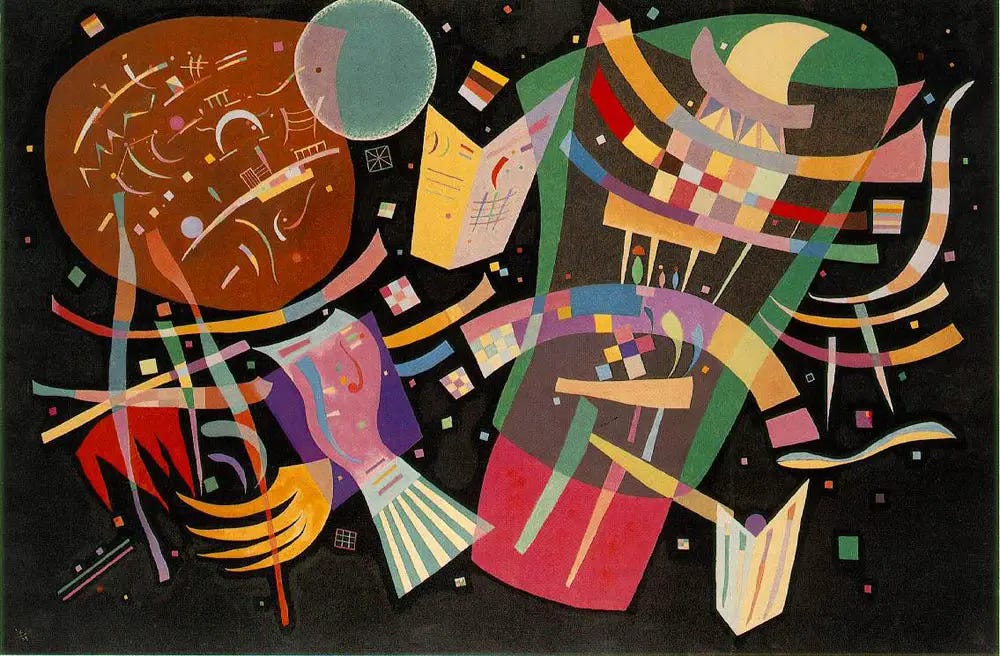Existential Productivity
How to avoid procrastinating if you find yourself in an infinite, uncaring universe
“Doctor, I’m depressed,” says the man. “Life is harsh, unforgiving, cruel.”
The doctor lights up. The treatment, after all, is simple. “The great clown Pagliacci is in town tonight,” the doctor replies, “Go and see him! That should sort you out.”
The man bursts into tears. “But doctor,” he says, “I am Pagliacci.”
I had a Pagliacci moment a couple of months ago when I was on a hike with Caspar. I had been in a funk and asked him, out of curiosity: "Who is the most productive person you know?"
He paused for a few seconds, then replied: "Probably you, Neil."
I thought to myself: "But, I am Neil…” If I were the most productive person he knew, he must be in trouble.
Although it's not like I haven't put the work in: I've read Getting Things Done, Flow, Four Thousand Weeks, Eat the Frog, Atomic Habits, The One Thing, Essentialism, The Pomodoro Technique, The 5 Second Rule, Monotasking, Indistractable. I've wasted weeks of my life on productivity. If you are going to procrastinate, it is maybe better to do so ‘productively’.
What many of these books boil down to is to be more realistic about how much time you have, to acknowledge the finitude of life and stop trying to do too much. What they don’t help with is giving you a sense of purpose. They don’t address the deep existential questions of why you should do anything at all in the first place.
A couple of weeks ago, I went to the Glasgow School of Art’s degree show, where 372 people were exhibiting. Given I had about two hours spare, this worked out to about 19 seconds per person, not including walking between exhibitions. The idea of “doing” the degree show is like the idea of “doing” life. It can’t be done. To enjoy going to the degree show, to enjoy life, you have to be ok with the idea that you can’t see everything. Some things will have to be dismissed in a glance if you want to make it around the whole show.
There’s a sinking feeling when you walk into a gallery and see the artist invigilating. It’s like an awkward confrontation with a beggar when you have no small change.
In one of these awkward moments, I got into a conversation with the Romanian artist, Teo Modoi. Teo was deflated after four years of hard work. “Everyone keeps asking ‘what are you going to do now?’ but I don’t know,” she said.1
That morning I had been thinking that to understand productivity we have to start at the beginning: the act of creation. Why is there anything at all? Why do we even have the universe? From Genesis:
And God created great whales, and every living creature that moveth, which the waters brought forth abundantly, after their kind, and every winged fowl after his kind: and God saw that it was good.
What I love about this is that the God of Genesis does not know in advance that it would be good. He creates the heavens and the Earth and only sees that they are good once they are made. This is a good lesson: trying things out to see if they are good. Through action (and feedback) we increase our understanding of a situation. But how do you know what to act on?
There are three circumstances in which I can imagine someone clicking to read a blog post about productivity:
They are procrastinating and feeling unproductive;
They ... actually, I can only think of one at the moment. I wrote ‘three’ because I hoped my mind would come up with two more reasons. I am sure I could have squeezed a couple out ("suggest them in the comments below!") but it is not good to force it.
Ideas enter consciousness without conscious control. You can will yourself to think about a topic but unless you have a spark of inspiration such thoughts tend to be dead.
All creation stories—from Genesis to the Big Bang—start with a moment of irrational exuberance. Every action sets in motion unforeseen events so needs to be taken with a certain amount of trust. We can accumulate case studies and statistical evidence but we learn best from trying things out.
Kenneth O. Stanley wrote a marvellous book a few years ago called Why Greatness Cannot Be Planned. As an AI researcher (who has now left academia to lead a team at OpenAI), Stanley shows that if you already know the outcome before you start then by definition it cannot be innovative and thus cannot be great. Stanley recommends pursuing what is immediately interesting, not some overarching final goal that was arbitrarily decided on months previously. Ask yourself: what action sparks possibilities in the mind?
At the beginning of The Iliad and The Odyssey, Homer appeals to the muses to inspire his writing. The poet is a vessel who channels inspiration, which exists as a force in the universe. Whether this energy is divine or orgone or élan vital or doesn’t exist at all doesn’t matter: the unconscious spark is just as unknowable. The unconscious is a miracle of autonomic systems and unexpected neural connections. A productive person is a receptive vessel for channelling inspiration.
Next week, I will gather together some ideas about how we might become more receptive … if I am inspired to do so.
What I should have said at this point is “Not knowing is the most intimate.” And then she would have become enlightened.






This post is good, as they usually are, when I get time to read them... but this one especially so and landed in my inbox just at the right time. Insightful, thought provoking, reassuring even... Thanks Neil
Great read!